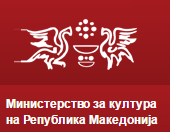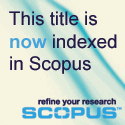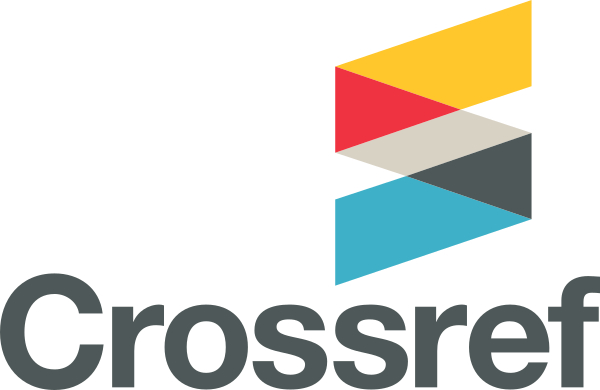JSER Policies
JSER Online
JSER Data
Frequency: quarterly
ISSN: 1409-6099 (Print)
ISSN: 1857-663X (Online)
Authors Info
- Read: 29523
Complaints procedure
This procedure applies to complaints about the policies, procedures, or actions of The JSER's editorial staff. We welcome complaints as they provide an opportunity and a spur for improvement, and we aim to respond quickly, courteously, and constructively. The procedure outlined below aims to be fair to those making complaints and those complained about.
Definition
Our definition of a complaint is as follows:
- The complainant defines his or her expression of unhappiness as a complaint;
AND
- We infer that the complainant is not simply disagreeing with a decision we have made or something we have published (which happens every day) but thinks that there has been a failure of process - for example, a long delay or a rude response - or a severe misjudgment.
- The complaint must be about something that is within the responsibility of The JSER's editorial department - content or process.
JSER is aware of the complaints stated below:
1) Authorship complaints
2) Plagiarism complaints
3) Multiple, duplicate, concurrent publication/Simultaneous submission
4) Research results misappropriation
5) Allegations of research errors and fraud
6) Research standards violations
7) Undisclosed conflicts of interest
8) Reviewer bias or competitive harmful acts by reviewers
How to make a complaint
The best way to reach us is by email. Complaints should ideally be made to the person the complainant is already in contact with over the matter being complained about. If that is not appropriate please email jser@fzf.ukim.edu.mk
Whenever possible complaints will be dealt with by the relevant member of the editorial staff. If that person cannot deal with the complaint he or she will refer it to a section editor or the executive editor.
Complaints that are not under the control of The JSER's editorial staff will be sent to the relevant heads of department.
Complaints about editorial matters that are sent to the chairman of the JSER Board, to the chief executive of JSER (the publishing group), or to FZF dean’s offcie, and officials will usually be referred in the first instance to the editor (and invariably if they relate to editorial content, for which the editor is wholly responsible).
All complaints will be acknowledged within three working days.
If possible a full response will be made within four weeks. If this is not possible an interim response will be given within four weeks. Further interim responses will be provided until the complaint is resolved.
If the complainant is not happy with the resolution he or she can ask for the complaint to be escalated to the individual's manager or to the executive editor.
If the complainant remains unhappy, complaints should be escalated to the editor, whose decision is final.
If a complainant remains unhappy after what the editor considers a definitive reply the complainant may complain to an external body (see below).
External bodies
If the complainant has exhausted the internal processes and is still unhappy he or she can complain to one of the following bodies:
The Committee on Publication Ethics
COPE publishes a code of practice for editors of scientific, technical, and medical journals http://www.publicationethics.org. It will consider complaints against editors but only once a journal's own complaints procedures have been exhausted.
COPE charts of authorship complaints
- Corresponding author requests addition of extra author before publication
- Corresponding author requests removal of author before publication
- Request for addition of extra author after publication
- Request for removal of author after publication
- Suspected guest, ghost or gift authorship
- Advice on how to spot authorship problems
Share Us
Journal metrics
-
 SNIP 0.059
SNIP 0.059 -
 IPP 0.07
IPP 0.07 -
 SJR 0.13
SJR 0.13 -
 h5-index 7
h5-index 7 -
 Google-based impact factor: 0.68
Google-based impact factor: 0.68
10 Most Read Articles
- PARENTAL ACCEPTANCE / REJECTION AND EMOTIONAL INTELLIGENCE AMONG ADOLESCENTS WITH AND WITHOUT DELINQUENT BEHAVIOR
- RELATIONSHIP BETWEEN LIFE BUILDING SKILLS AND SOCIAL ADJUSTMENT OF STUDENTS WITH HEARING IMPAIRMENT: IMPLICATIONS FOR COUNSELING
- EXPERIENCES FROM THE EDUCATIONAL SYSTEM – NARRATIVES OF PARENTS WITH CHILDREN WITH DISABILITIES IN CROATIA
- INOVATIONS IN THERAPY OF AUTISM
- AUTISM AND TUBEROUS SCLEROSIS
- THE DURATION AND PHASES OF QUALITATIVE RESEARCH
- REHABILITATION OF PERSONS WITH CEREBRAL PALSY
- DISORDERED ATTENTION AS NEUROPSYCHOLOGICAL COGNITIVE DISFUNCTION
- DIAGNOSTIC AND TREATMENT OPTIONS IN AUTISTIC SPECTRUM DISORDERS – AN OVERVIEW
- HYPERACTIVE CHILD`S DISTURBED ATTENTION AS THE MOST COMMON CAUSE FOR LIGHT FORMS OF MENTAL DEFICIENCY
















